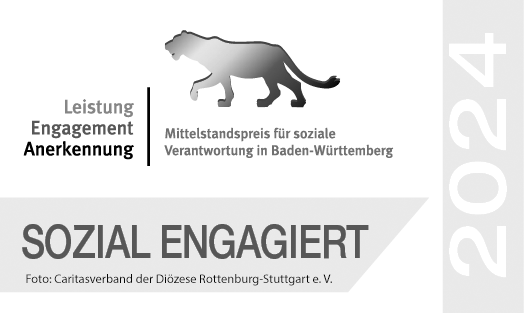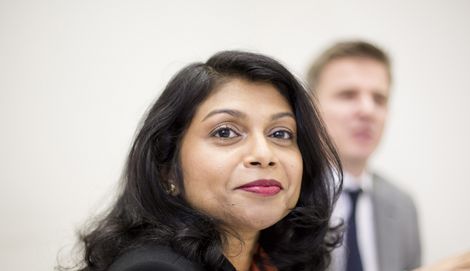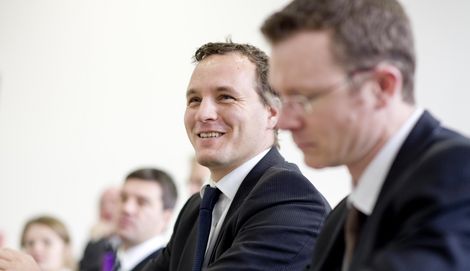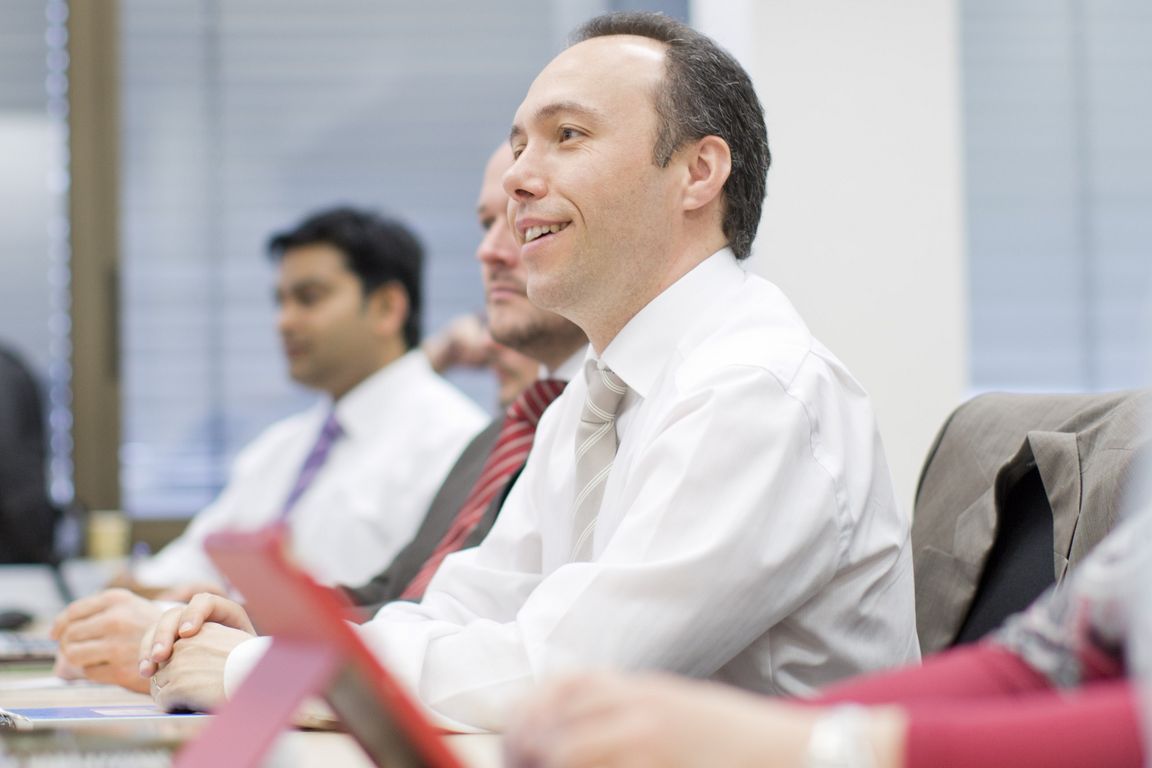Executive MBA Programs
You are here: Programs & Courses » Executive MBA Programs for Senior Managers and Executives
Stay with the Best
How do experienced leaders continue to develop? By learning more every day. By constantly reflecting on their actions and decisions. And by exchanging ideas with the smartest brains. This is exactly the core philosophy of our Executive MBA programs: The best should come together in Mannheim, learn with and from each other, and thus unleash their full potential. This is why many companies of all sizes and industries develop their top performers with one of our Executive MBA programs.
Our Portfolio of Executive MBA Programs
Mannheim Executive MBA
18-month, weekend-based part-time Executive MBA program for professionals and executives with at least 8 years of postgraduate job experience
Learn moreESSEC & MANNHEIM Executive MBA
18-month, modular-based part-time Executive MBA program for professionals and executives with at least 8 years of postgraduate job experience
Learn more10 Reasons to Do an EMBA at Mannheim Business School
Benefit from a flexible and convenient curriculum tailored to the needs of busy executives
Get a degree from Germany’s leading university in business
Gain up-to-date knowledge in all relevant management disciplines
Benefit from a world-class faculty who combine real business know-how with cutting edge insights from research
Grow as a leader and boost your personal development
Gain a truly cross-cultural business perspective and benefit from highly diverse classes
Extend your EMBA experience and attend the Mannheim Series for Executives (MSE) after graduation
Be inspired by the valuable and lasting high-calibre MBS network of business partners, participants, and alumni
Refine your professional profile and increase your versatility and value to your employer
Get an excellent value for money
Upcoming Information Events
Interview with our Admissions Manager Nilgün Vatansever
Could an Executive MBA be right for you?
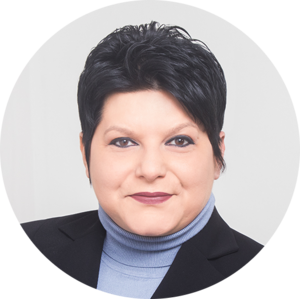 Executive MBA programs are considered as career boosters and the ideal springboard for a career in top management. But who is the ideal candidate for these programs? And what makes them so special? Nilgün Vatansever, Admissions Manager for the Executive MBA programs at Mannheim Business School, explains.
Executive MBA programs are considered as career boosters and the ideal springboard for a career in top management. But who is the ideal candidate for these programs? And what makes them so special? Nilgün Vatansever, Admissions Manager for the Executive MBA programs at Mannheim Business School, explains.
Ms. Vatansever, who is the ideal candidate for an Executive MBA program?
Executive MBA programs are suitable for experienced professionals and executives with considerable work experience and a first academic degree. At Mannheim Business School, we require at least eight years’ professional experience. However, the current class average is significantly higher. Thus, these programs are the ideal choice both for professionals wanting or having to move into general management and for executives already having personnel and/or budget responsibility and wanting to develop themselves professionally and personally.
Why this distinction from normal MBA programs? Couldn’t it be inspirational for experienced executives and young managers to exchange views?
Of course, and good business schools also offer this opportunity to exchange views, but at extracurricular events. Although the basic content of an MBA and an Executive MBA (EMBA) may be similar in many parts, the methods of knowledge transfer are different. The quality and the intensity of learning with and, above all, from each other in EMBA programs may be completely different from that in programs aimed at a younger audience. Thus, we strongly encourage participants to contribute their own knowledge and experience in the classes. Therefore, it is not uncommon that a Latin American engineer responsible for major international projects, a German humanist working in journalism and a North American geologist working in the oil industry, for instance, have to jointly find a solution to an innovative problem and, hence, contend with completely new ways of thinking and working.
This certainly places specific demands on the teaching staff, doesn’t it?
Definitely! Plain classroom teaching makes no sense in EMBA programs because basic terms and concepts are generally already familiar due to the many years of professional experience or learned through self-study. Teachers are increasingly taking on the role of moderators by leading and steering expert discussions, accurately contributing their own expertise and ultimately ensuring that the learning objectives are achieved.
What is your advice to prospective candidates? Ultimately, one hardly decides on an Executive MBA program overnight...
You should obtain accurate and comprehensive information, since not all MBA and EMBA programs offered in Germany comply with international standards. Nor is every program with “executive” in its name actually an EMBA. Therefore, you should seek to speak with the business school offering the desired program and obtain the required information, preferably in person or by talking to current participants and alumni, possibly with a similar career. Open days, like those held biannually at Mannheim Business School, are ideal. Last but not least, you should also pay attention to application deadlines and apply early to benefit from early bird discounts or scholarships.
The Ideal Executive MBA Candidate
You are an internationally experienced executive? You combine an ambitious and entrepreneurial mindset with a strong sense of responsibility? You want to expand your business knowledge, hone your management skills and grow as a person? Then you are exactly the kind of person we are looking for. The ideal candidate fulfils the following requirements:
- A first academic degree
- At least 8 years of postgraduate work experience
- Significant professional experience, including disciplinary and/or budgetary responsibilities
- Experience in an international work environment
- Excellent command of the English language
- The support of the employer and his or her permission to attend classes on workdays
- The motivation to invest a substantial amount of time and effort into our highly challenging but also very rewarding Executive MBA program
Mannheim EMBA Programs: Career Development Facts
More than 75% of our Executive MBA alumni changed jobs (within or outside their company) one year after graduation
More than 70% of all alumni reported that they have achieved all goals after graduation
Salary increase of more than 80% one year after graduation for the alumni of the ESSEC & MANNHEIM Executive MBA
Impressions of former and current participants
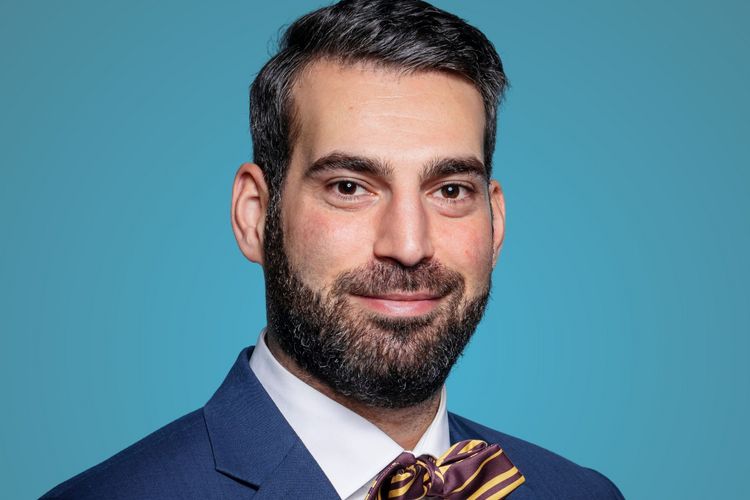
Deniz Yilmaz, Strategic Initiatives, Customer Success & Delivery at SAP, ESSEC & MANNHEIM EMBA Class of 2024“Even before I applied, I knew this was the program for me. I contacted admissions first, then alumni to get their perspective. The most important part of the EMBA is not just the classes, but the overall experience that you have to enjoy. I would say that the biggest benefit is a change in the way you see the world, both personally and professionally. And this change of perspective gradually changes your thoughts and subsequently your behavior to be ‘better’.”
Read more
Why choose the ESSEC & MANNHEIM EMBA
I chose the ESSEC & MANNHEIM EMBA because the program structure was ideal for what I was looking for. It focuses on teamwork in intensive modules. It provides the ideal balance to learn not only from the lectures but also from your classmates.
A smart move is to really think about why you want to be in the program. Even before I applied, I knew this was the program for me. I contacted admissions first, then alumni to get their perspective. The most important part of the EMBA is not just the classes, but the overall experience that you have to enjoy.
Getting into the program
Contact with the Admissions Manager was a very pleasant experience. She was very friendly and informative. Her focus was really on checking my motivation for joining the EMBA and helping me to understand the challenges and what to expect from the program. A big plus was that she put me in touch with several alumni before I formally applied. After applying, she was also helpful in checking that everything went well and continued to guide and help me through the process.
When I was accepted into the program, I was really happy. It does take some effort to apply, to manage your personal finances, to prepare all the documents required for the application, and to prepare for the interviews themselves. It is like applying for a job, and in the end you are always relieved to get an offer as a “reward”.
Meeting my classmates for the first time
I still remember the first moments when I met my classmates for the first time. I was very nervous when I walked into La Defense. But the program was set up in such a way that the first course helped tremendously in "team building" and getting to know your classmates. It was amazing how quickly you could feel the diversity of everyone's experiences. At that moment I realized that the program was the right choice and that I would learn amazing things.
Focus on the right things!
The highlight of the program for me was the Outdoor Leadership Training. It really provides a very deep insight into your own abilities as a leader, and it also confronts you with your own shortcomings. In terms of challenge, it is really the impact of the program on your whole life. Juggling your regular work, family life, and studies at certain times is challenging in terms of managing it all. But in doing so, you learn the greatest lesson of the program: Focus on the right things!
I think the most important thing is to be prepared for that impact. This means that your spouse and children need to be on board. You also have to be willing to put your personal needs at the bottom of your priority list for 18 months. This can be quite intense and demanding, but I think it makes sense to prepare mentally and also to align yourself with your peers.
Changed perspectives and open doors
I would say that the biggest benefit is really a change in the way you see the world, both personally and professionally. And this change of perspective gradually changes your thoughts and subsequently your behavior to be "better". It's not about getting a better job offer when you graduate or having more respect because of your title. It's about gaining new insights and the ability to gain new insights. Doors are more likely to open for curious students than for professionals.
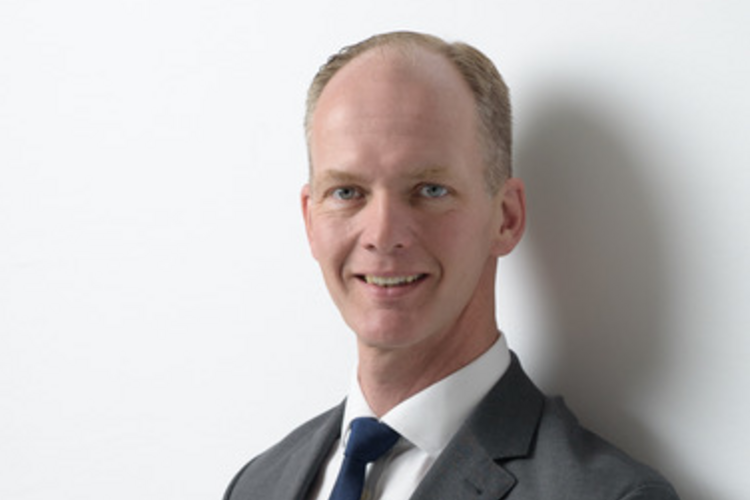
Jens Grüneklee, Corporate Development/M&A EMEA, Gates Corporation, ESSEC & MANNHEIM EMBA Class of 2019“I had gained a lot of professional experience and knowledge throughout my career by my mid-40s. However, this was purely practical experience—sometimes also due to an element of intuition, but only marginally due to specialist knowledge. I lacked the basics, the theory, which is critical when you’re up against younger, well-trained people. Although it’s been a very intensive period, I’m hugely satisfied.”
Read more
Jens Grüneklee, now Corporate Development / M&A EMEA, Gates Corporation, was completing the ESSEC & MANNHEIM Executive MBA program at Mannheim Business School at the time of this interview. He graduated in 2019.
“2017 was my breaking point. My contract as director of a Munich-based financial services provider had come to an end. I knew I didn’t want to extend it. I had gained a lot of professional experience and knowledge throughout my career by my mid-40s. However, this was purely practical experience—sometimes also due to an element of intuition, but only marginally due to specialist knowledge. I had last studied 15 years earlier. I lacked the basics, the theory, which is critical when you’re up against younger, well-trained people.
My choice of business school wasn’t primarily based on the rankings, but rather on what suited me and my interests. The networking opportunities were also one of my priorities. Since I’ve always been a committed Francophile, I looked for a program that somehow involved France. My wife is French, and we live and work in Luxembourg. So I booked an international program at Mannheim Business School, which is delivered entirely in English, with half the courses in Mannheim and the other half in Paris. Eighteen intensive months and 46 participants, each with their own specific choices, from whom I could benefit.
Although I’m one of the older ones at 47, the age difference in the group is not so big. The majority of the us are approaching 40, which I find very congenial. I would have certainly benefited less from a younger group. As it is, we all have more life and work experience.
I find learning easy. This is partly due to the fact that the knowledge transfer is different from that at universities: less bookishness and more discussion, teamwork and case studies. Since this is a sheltered space, I never have the feeling that anyone here needs to assert their alpha status. Nobody has the attitude: ‘I’m the top dog here. I know how things work.’ We all want to learn and are consequently open to new experiences.
In the longer term, I would continue focusing on a leadership position in strategic development. I feel I am well enough prepared for this now. Although it’s been a very intensive period, I’m hugely satisfied.”
Excerpt from the article „Später, aber dafür bewusster“, Christiane Bertelsmann, Süddeutsche Zeitung, February 15, 2019

Rukayyat Kolawole, CEO and founder of PaceUP Invest, ESSEC & MANNHEIM EMBA Class of 2020"The program has been a game changer for my professional growth, providing invaluable support in transforming my idea into a startup. Not only have I forged incredible connections with fellow participants in my cohort, I have also joined some of the MBS clubs, cultivating meaningful relationships with accomplished alumni. It has been an extraordinary journey of personal and professional development."
Read more
Getting into the program
The idea of pursuing an Executive MBA had long captivated my imagination and I had set my sights on various programs. It was my husband who told me about the outstanding reputation of Mannheim Business School (MBS) when we relocated to Germany and had to consider the practicalities of travelling to classes and having a young child.
When I first contacted the admissions manager, she identified the joint Executive MBA with ESSEC Business School as a compelling option, especially since ESSEC has a reputation for fostering entrepreneurial talent and I had already contemplated launching a startup. The program instantly resonated with me, and I applied.
I plunged headlong into the application process, determined to make my mark. As I diligently crafted my essays, I sought guidance from friends who had already embarked on their MBA journeys in the UK and the US. Their invaluable expertise became my compass, helping me ensure that my responses accurately addressed the essay requirements and showcased my true potential.
Embarking on this crazy, exhilarating ride
When I was notified that I was accepted into the program, I went through a whirlwind of emotions, a delightful cocktail of happiness, ecstasy and mild anxiety. My daughter was barely seven months old. It hit me like a ton of bricks that pursuing my Executive MBA would mean being away from her on those dreaded study trips. Yet, amidst this emotional rollercoaster, a flicker of excitement sparked within me, since the road ahead promised an exhilarating journey of knowledge and growth. Despite the tinge of separation anxiety, I couldn’t help but eagerly anticipate the adventures awaiting me. It was time to buckle up, embrace the unknown and embark on this crazy, exhilarating ride called an Executive MBA.
When I sat in class for the first time, an overwhelming sense of exhilaration washed over me, igniting an indescribable joy within. You see, I’ve forever been enamored by the art of connection, thriving on the opportunity to engage with individuals from various walks of life and soak up the rich tapestry of diverse cultures. Having had the great opportunity to work with so many people from different cultures across the globe, the prospect of embarking on an Executive MBA journey only amplified my passion for forging new relationships. And oh, what a class we were! Representing over 22 nationalities!
Family as support network
Amidst the intense training and personal growth, I faced my own unique set of challenges. As a mother, leaving my daughter behind and venturing outside of Mannheim was a heart-wrenching experience. However, I was fortunate to have an incredible support system in place. Her father and my sister, ever supportive, stepped in to lend a helping hand. My sister even made the journey from London to assist, easing the pain of separation and reminding me that I was not alone.
Their unwavering support and presence alleviated the difficulties, providing solace and reassurance during those tough moments. It reminded me that while the journey may be arduous, I had a network of loved ones cheering me on, ready to lend their support whenever needed. With their help, the experience became more bearable, allowing me to fully immerse myself in the transformative process. It reinforced the importance of a solid support system and the unwavering love that sustains us through challenging times.
Personal highlights
Among the myriad moments etched in my memory, one personal highlight still shines brightly—the leadership and military training we underwent at Saint-Cyr in France. It was a pivotal experience, marked by challenges, exhilaration and an unwavering commitment to building our leadership skills.
In the blink of an eye, our cohort went from being mere acquaintances to a tightly knit team, thanks to the unique environment we were thrust into. Saint-Cyr demanded nothing short of our best, pushing us beyond our limits and encouraging us to rise to the occasion. It was an environment designed to forge leaders out of raw potential, and it did just that.
Through shared trials and triumphs, we not only formed lasting bonds but also discovered and embraced our distinct leadership styles. Looking back, those moments of separation served as a powerful reminder of the strength and resilience we possess as individuals. Nearly five years have passed and yet, the impact of that time remains. It serves as a constant reminder of the incredible personal and professional growth we experienced together, and the lasting bonds we formed along the way.
Founding my own company
The program has been a game changer for my professional growth, providing invaluable support in transforming my idea into a startup. Not only have I forged incredible connections with fellow participants in my cohort, I have also joined some of the MBS clubs, cultivating meaningful relationships with accomplished alumni. It has been an extraordinary journey of personal and professional development.
With MBS alumni excelling in Germany’s top industries, there’s potential for powerful business connections. We can still improve and connect even more at the business level to support each other’s career growth.
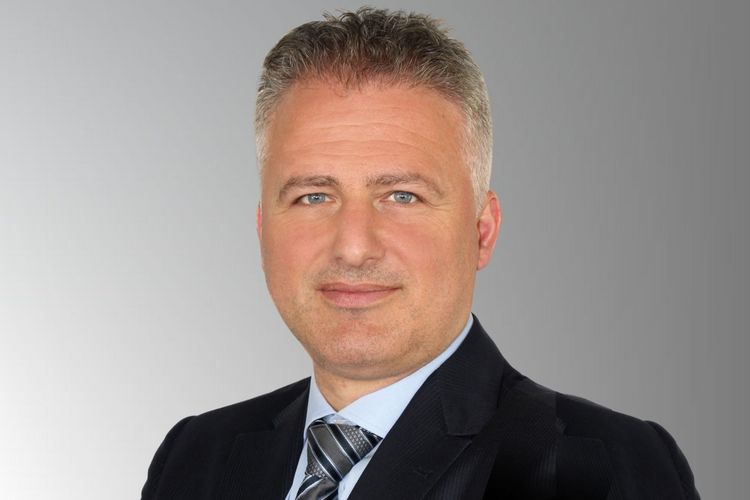
Ok Ocak, Director Finance Europe at Seaman Paper, ESSEC & MANNHEIM EMBA Class of 2020"I had been in contact with the admissions team since 2009, but it took me another nine years to finally apply. During that time, I was stationed in Istanbul for an international company, constantly following Mannheim Business School and the international rankings throughout the years. After returning to Germany, I felt I had gathered enough experience and seniority. When MBS contacted me and told me I was accepted, I felt relieved, honored and very happy to complete the process and start this EMBA program after nine years of 'waiting' for the right time."
Read more
Realizing a long-cherished dream
My program selection was subjective from the beginning. I had already completed my first degree as Diplomkaufmann at the University of Mannheim between 1995 and 2001, so the Executive MBA felt like coming home to me. During my first degree program, I did an ERASMUS exchange to Swansea in 1999–2000. But ESSEC Business School in Paris had been high on my shortlist of destinations as well. So it was great that I managed to go there a few years later.
I had been in contact with the admissions team since 2009, but it took me another nine years to finally apply. During that time, I was stationed in Istanbul for an international company, constantly following Mannheim Business School and the international rankings throughout the years. After returning to Germany, I felt now was the time to apply, because now I had gathered enough experience and seniority.
To prepare for the application, I made use of the detailed descriptions on the homepage. I also attended an Open Day and visited a class. During that day, I spoke with some of the alumni, but mostly prepared for the application process by myself. When MBS contacted me and told me I was accepted, I felt relieved, honored and very happy to complete the process and start this EMBA program after nine years of “waiting” for the right time.
When I finally met my classmates for the first time, I felt kind of nervous and I was wondering if I would be able to match, meet and follow the class at that high level. I was hoping to gain new insights and new perspectives after spending nearly 17 years in the aerospace and defense industry at Airbus and Rolls-Royce Power Systems. And that is what I did in the program. I felt that I had enough space for my self-development in an environment with highly educated teammates. I could learn and confirm what I felt had been my strengths and weaknesses throughout my professional career. For me, that in itself was a highlight of the program.
What also had a lasting impact on me was some of the professors who imparted their personal insights and values to us. Prof. Kakabadse in Strategic Leadership and Prof. Bibard in Ethics confirmed that business is not solely about business and can only thrive in the broader context of values and culture. The Outdoor Leadership Training at Saint-Cyr was also something to remember.
Concerning juggling my studies, job and personal obligations during the program, I was a little lucky. I quit my position as CFO at Rolls-Royce Power Systems and had the luxury of studying nearly full-time for 10 to 11 months. During the second part of the program, I started to work again at ABB Germany, however it was great that my employer respected how important my studies were to me and gave me the flexibility to concentrate on the courses. Despite this, the program was still challenging for me, and I express my deepest respect to those who did not have the luxury I had.
Looking back, I would say the program helped me in my personal development and boosted my career by giving me the opportunity to develop my management and leadership expertise outside of the aerospace and defense industry. Having access to the MBS Network is quite useful, particularly in the event of concrete business problems. At my current job, we recently had a question regarding some accounting and tax procedures for China. Through the network, I easily got in touch with someone who had the information we needed to help us tackle this problem.
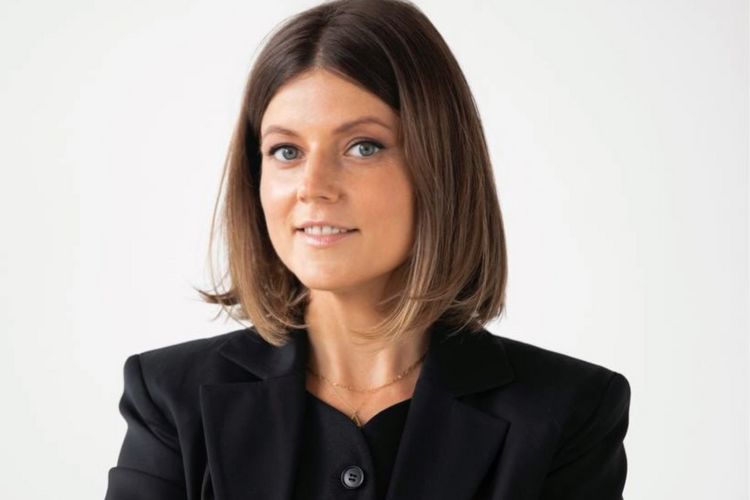
Alexandra Sergeeva, Global People & Culture Lead, Automotive Refinish Coatings at BASF, ESSEC & MANNHEIM EMBA Class of 2024“Looking back, the ESSEC & MANNHEIM EMBA has played a significant role in my professional and personal development as well as my career trajectory. First and foremost, the EMBA program has significantly expanded my professional network. Interacting with a diverse cohort of talented individuals from various industries and backgrounds has allowed me to establish meaningful connections and build valuable relationships beyond the program itself.”
Read more
Becoming a Transformational and Impactful Leader
After working in operational and strategic HR for over 14 years and being responsible for the full spectrum of HR functions, I wanted to challenge myself and expand my skills beyond my current role. Throughout my career at BASF, I have gained extensive experience leading diverse HR teams in emerging markets such as the Middle East, West Asia, CIS and Africa. In 2020, I took on a Global HRBP position at the headquarters in Germany to broaden the scope of my expertise. And I believe that undertaking the ESSEC & MANNHEIM EMBA program will help me to enhance my business acumen and personal brand, while providing me with the necessary tools to re-establish my leadership capacity as a woman in the multicultural global aspect. My goal is to become a transformational and impactful leader in my organization and beyond, adapting to the new unprecedented times we live in.
From Strangers to Close-Knit Community
Walking into my class and meeting my classmates for the first time was an exciting and energizing experience. I was genuinely curious and thrilled about the diverse group of individuals I would be learning with. What amazed me the most was how quickly we went from being strangers to building bridges and forming connections from day one.
Challenges and Opportunities
While the program presented its fair share of challenges, they ultimately resulted in significant personal and professional growth for me. These challenges pushed me to go beyond my limits, adapt to new situations, work with diverse teams, and further cultivate my resilience. And I am immensely grateful for the unwavering support of my community, including my leaders at BASF, my colleagues, my EMBA classmates, my personal coach, my friends and, most importantly, my family, who stood by me throughout this transformative journey!
Looking back, the ESSEC & MANNHEIM EMBA has played a significant role in my professional and personal development as well as my career trajectory. The program has provided numerous benefits that have positively influenced my journey. First and foremost, the EMBA program has significantly expanded my professional network. Interacting with a diverse cohort of talented individuals from various industries and backgrounds has allowed me to establish meaningful connections and build valuable relationships beyond the program itself. In addition, the program allowed me to take time for personal coaching and invest in my long-term development.
As a direct result of my EMBA experience, new and exciting opportunities have presented themselves. One such opportunity I recently accepted is the role of Global People and Culture Lead for BASF Automotive Refinish Coatings. This position fits perfectly with my career aspirations and allows me to apply the knowledge, skills and network I have gained through the EMBA program.
In conclusion, the ESSEC & MANNHEIM EMBA has been instrumental in my professional and personal development. It has expanded my network, provided access to personal coaching, fostered cognitive diversity and led to new and exciting opportunities. I am grateful for the transformative impact the program has had on my career and life as a whole.
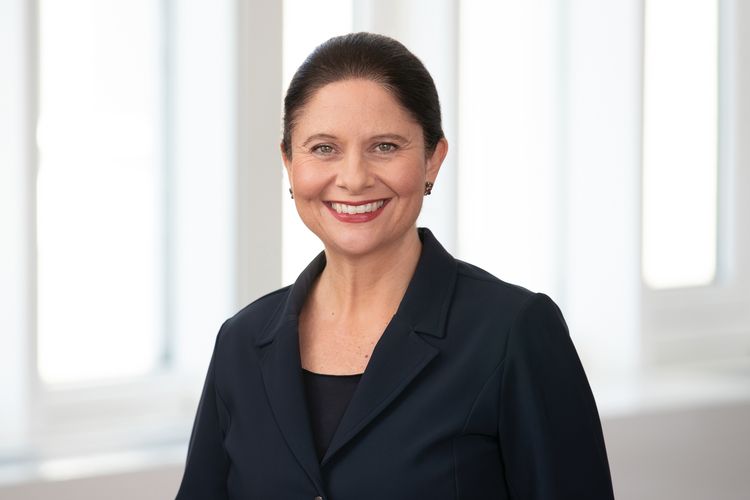
Isabelle Bekeredjian-Ding, Head of Department at Paul-Ehrlich-Institut and Acting Director ZEPAI, ESSEC & MANNHEIM EMBA Class of 2022"In 2021, I developed ZEPAI, the German Center for Pandemic Vaccines and Therapeutics. We became a startup with an agile organization, and built expertise in production, logistics, supply chain management, finance, digitalization and contract management. A whole new world for a physician, but the MBA courses provided a solid basis."
Read more
I decided for the ESSEC & MANNHEIM Executive MBA because the public sector also needs knowledgeable managers and leaders. Taking a look beyond your environment is crucial for innovation in management. Challenging yourself in a new environment facilitates out-of-the-box thinking and innovative change.
I am an adjunct professor. Going back to school made me reexperience the student situation. This was a humbling experience and an opportunity I would not want to have missed!
When I started the program, I had not foreseen the pandemic and the tremendous workload. The remote MBA courses became my window to the outside world, a piece of distraction with a salutary effect.
In 2021, I developed ZEPAI, the German Center for Pandemic Vaccines and Therapeutics. We became a startup with an agile organization, and built expertise in production, logistics, supply chain management, finance, digitalization and contract management. A whole new world for a physician, but the MBA courses provided a solid basis.
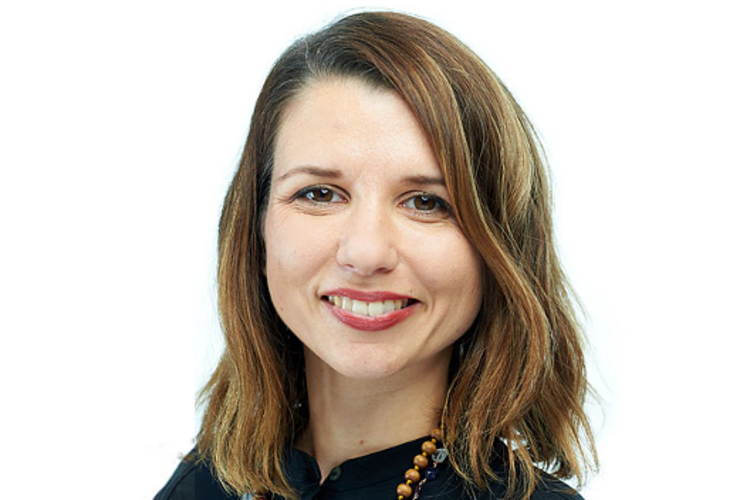
Carolin Kutzera, Managing Director at Bretz, ESSEC & MANNHEIM EMBA Class of 2018“Since I am moving to a higher position in my company, I want to boost my business-oriented competences along with my leadership skills. The professors are excellent at giving insights that are applicable to real life. Many assignments actually involve your own company. My study peers from the various industries help me consider things from a different perspective. There is a lot of mutual respect and exchange, and real team spirit!”
Read more
With her job as creative director of a medium-sized business, Carolin is a role-model for women in our EMBA programs. She joined the ESSEC & MANNHEIM Executive MBA program in October 2016. We asked her if the program has met her expectations so far and how she manages to balance the workload of the program, the demands of her job and her private life.
1. What is your main motivation for an EMBA program?
As creative director, my background is rather artistic. Currently, since I am moving to a higher position in my company, I want to boost my business-oriented competences along with my leadership skills.
2. Does it meet your expectations so far?
It absolutely does. Now that almost half the program is over, I can say that I will leave with more than just a toolbox for my business. The professors are excellent at giving insights that are applicable to real life. Many assignments actually involve your own company. My study peers from the various industries help me consider things from a different perspective. There is a lot of mutual respect and exchange, and real team spirit!
3. How do you manage to juggle your job, the study workload, and private life?
Well, it is tough but possible. Some decisions at work need to happen much faster. The study part is actually a very positive additional workload. Every time a module ends I am energetic rather than exhausted, as I am super keen to apply what I have just learnt to my job. To charge my batteries, I give myself short but clear breaks where I literally go offline. This helps me free my mind and get back on track very fast.
4. What advice would you give other women thinking of doing an EMBA?
Do not find excuses to postpone your dream. Just go for it and challenge yourself. It is a great, intense journey together with a truly diverse and inspiring group of people willing to grow with you. You will not regret it!
If you want to join one of our EMBA classes, we strongly encourage you to get in contact with us. MBS also offers special scholarships for women in business.
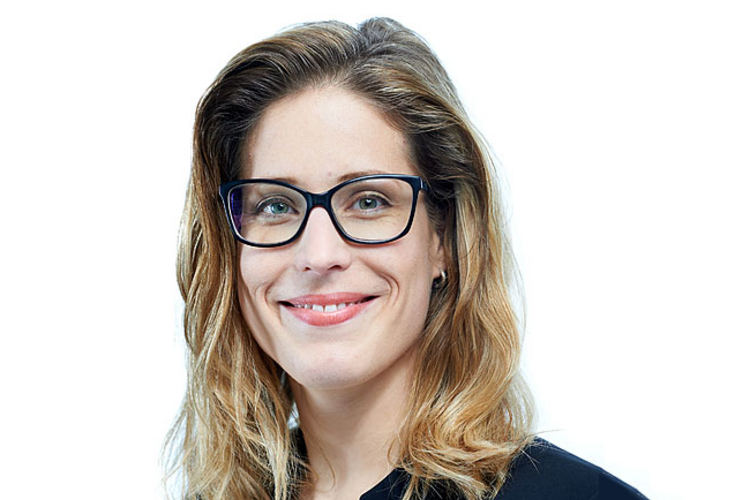
Nadja Scherer, Managing Director at peyer graphic, ESSEC & MANNHEIM EMBA Class of 2018“The amazing experience of an 18-month-long journey through academia, hard work, international and intercultural encounters as well as the possibility of applying what I learn immediately, at my job. The intensity of the program while being on the job in combination with my family life is a challenge. Living the moment – like going out with my class after a 10-hour class and no regrets the next day – makes me enjoy the intensity of my life even more.”
Read more
With her job as managing director of a medium-sized company and mother of two small children, Nadja is a role-model for women in our EMBA programs. She joined the (travel-intensive) ESSEC & MANNHEIM Executive MBA program in October 2016. We asked her if the program has met her expectations so far and how she manages to balance the workload of the program and the demands of family and job.
1. What is your main motivation/objective to do an EMBA program?
The amazing experience of an 18-month long journey through academia, hard work, international and intercultural encounters as well as the possibility of applying what I learn immediately “on my job”. All that combined with an explosion of my personal and professional network within literally weeks – invaluable!
2. Does it meet your expectations so far?
It does. In all possible ways. The quality of lectures, professors and speakers is outstanding. Our class is an incredible combination of highly professional and determined executives – especially my core peers have so quickly developed into being rather friends than classmates only. Workload is insane at times, even more than I expected. But so worth it.
3. How do you manage to juggle your job, the study workload - and family?
By setting priorities, taking breaks and living the moment. The intensity of the program while being on the job in combination with my family life is a challenge. Setting priorities helps me in not doing the unnecessary. Taking a regular “time out” – be it a lunch break on my own or a family weekend – recharges the batteries for the marathon still to come. Living the moment – like going out with my class after a 10 hour class and no regrets the next day – makes me enjoy the intensity of my life even more.
4. What advice would you give other women who think about doing an EMBA?
Do it. Now. Who else, if not you?
If you want to join one of our EMBA classes, we strongly encourage you to get in contact with us. New classes start in October. MBS also offers special scholarships for women in business.
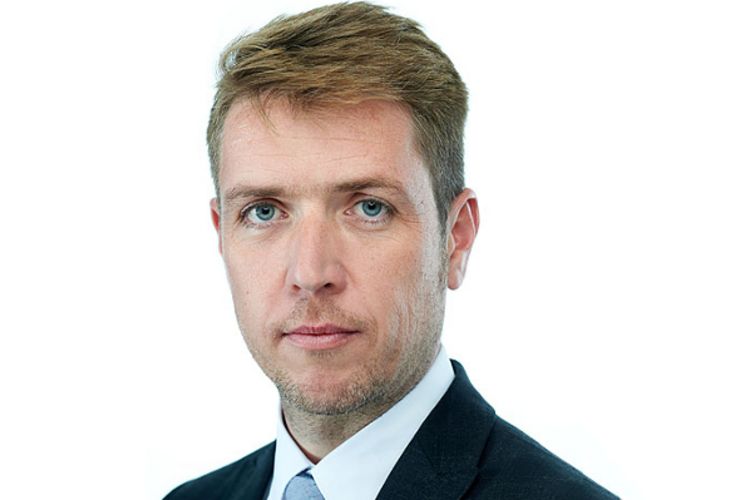
Christian Gossmann, Consultant MedTech, Healthcare, ESSEC & MANNHEIM EMBA Class of 2018“We all had different expectations and various reasons for starting. The program’s management told us up front: ‘It will be a transformational experience – you will not be the same person that started this program.’ At the core of the program is leadership. What a big and much-discussed word! For me, this is where the transformation started.”
Read more
Graduation – some reflections
I’ve graduated with Executive MBA degrees from two renowned business schools: What a great feeling!
Eighteen months ago, a group of 49 people from 24 countries and different industries and businesses started this EMBA program. We all had different expectations and various reasons for starting. The program’s management told us upfront: “It will be a transformational experience – you will not be the same person that started this program. It will be tough, as business life goes on, and most of you have families with (up to 4!!) kids. So, the key to success is optimization and effectiveness, including support from work and especially from your families.” I didn’t realize what they meant. Now I know!
At least once a month, our studies brought us together in Paris or Mannheim for four to six days, to attend the required, mandatory courses. On top of this, we had a couple of electives and international study trips to Washington and Asia, including Singapore, Seoul, and Shanghai. Since this EMBA is a high-level program, more than one pre- and post-assignment per course frequently had to be delivered. We also had to work on multiple projects such as the social class project and the strategy project. We learned a lot: from economics, accounting, and finance, to entrepreneurship and geopolitics. As this program is in general management, we did not become experts in a particular field, unless we already were before. However, we are now able to connect the dots and get the big picture.
At the core of the program is leadership. What a big and much-discussed word. For me, this is where the transformation started. I remember the first day with Prof. Kakabadse, who welcomed us with, “Most of you don’t want to be CEOs!” and the subsequent St. Cyr military leadership camp, when it became clear: These 18 months with these people will be interesting. It was an 18-month training camp, or perhaps a sandbox in which to get groups not only to work, but to deliver high-quality materials under time pressure. Almost all assignments and projects involved group work.
All the course assignments were done in a multi-competence team with five to six people. This means: Failure was not an option; somehow, these groups had to get up to speed with one another, otherwise it would have been torture. It is good we had some guidance, including creating a team charter and several coaching sessions. At the same time, the team pitched for the strategic project and kicked off the social class project. Within this setup, there is nowhere to hide. Due to the need to be effective and to face so many different personalities in such a short time, you inevitably learn a lot about yourself and others, and how to ensure the right leadership is in place to get things done. I was impressed with the open-minded, self-reflecting, professional, and friendly attitude of all these different people throughout this process. This transformation process was like a wave: Sometimes you ride it, and sometimes it rides you…
Now it’s done and dusted: We’ve delivered all assignments, the strategic projects have been judged, and our playgrounds for the world social class project have been funded. Welcome to Mannheim Palace to receive our degrees and throw our mortarboards, as tradition dictates. This feels so good!
However, it is sad that I won’t meet all these very familiar people on a regular basis anymore, and that I won’t have any more courses to prepare me for the unexpected. “It is not an end, it is a beginning,” said Prof. Wüstemann in his graduation speech. He may be right. Now, it is about putting all we have learned in context and reality.
The program has made me curious about the world, about opportunities, and especially about people. I am ready to be impressed, are you?
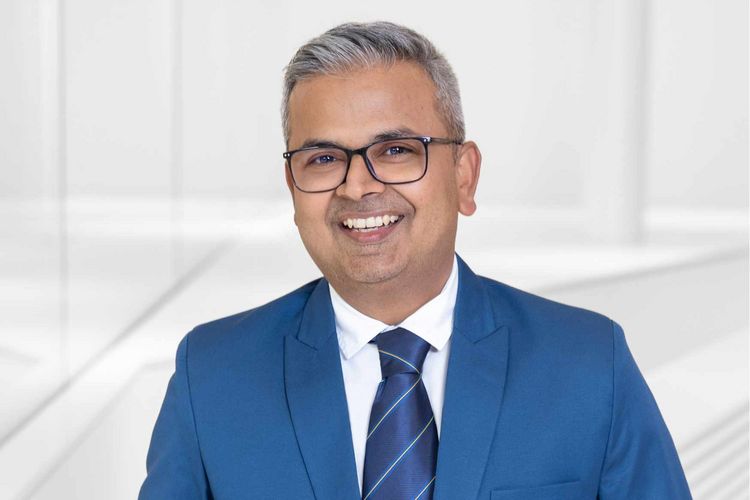
Neeraj Kumar, Corporate Purchasing - Raw Materials Project Leader at MAHLE, Mannheim EMBA Class of 2023“The EMBA contributed to my professional growth by honing my leadership skills, fostering a global perspective and providing extensive networking opportunities. I gained expertise in diverse business functions, enhancing my competitiveness for executive roles. The program’s intensity fostered my personal development, resilience and effective time management. The EMBA experience equipped me with a strategic mindset, prepared me for a leadership role and provided an asset for navigating the complex challenges of the business world.”
Read more
I decided to apply for the Mannheim Executive MBA because I want to achieve a leading position in the upper echelons of the industry. My higher aspiration is to be in a position where I can establish and take the industry to an advanced stage, and my organization can easily be the leader in its area of influence.
In the past, I led a European team at one of the biggest automotive suppliers in the world with a very high purchasing volume. I led my group in the best possible way, but I felt that something was missing, preventing me from leading the team even better. This gave me the idea to invest in my future and learn the management tools from a world-class business school.
The EMBA program of Mannheim Business School had the qualities that best fit my expectations and objectives. Having gone through the program brochure and curriculum, I felt that it was the best institution for me to develop general managerial and communication skills.
Getting into the program
I started the application process at the very last moment, just a few days before the deadline, when one of my friends said that he is going to do an EMBA at Mannheim Business School. I spent long nights working intensively on my application. My wife and my father helped me a lot when I was not sure whether I was preparing properly and whether my essays were delivering the message I wanted to convey. Thanks to my previous managers, I got the recommendation letters very quickly.
To make sure that my decision for MBS was right, I talked to current participants and alumni. But this is me: before I take a big decision, I invest a lot of time and try to gather as much information as possible. The MBS team was very friendly and helpful throughout the process. From the start, I felt like I belonged at MBS. They always answered promptly and were never irritated by my many questions.
When I was accepted to the program, I wanted to tell the whole world, “I am going to do an EMBA at the best business school in Germany!” I told my wife and called my parents, I even posted it on LinkedIn. I was very excited and happy. In 2005, I had already been accepted for an MBA at a business school in London, but my visa was rejected, so I was a bit worried again. When I heard that I was accepted, it was at first hard to believe. It was like my dream had finally come true.
Making friends and unforgettable memories
Before meeting my classmates for the first time, I was excited and a bit insecure because I knew that many of them came from top European companies and worked at more senior levels (like vice president). As non-Germans, we always have an element of bias. But to be honest, after the introduction session I immediately felt like I was part of a family. MBS has a unique introduction method which helped me to integrate in the team very quickly. A few of my classmates whom I know from the very first day are now my best friends. Simply amazing.
My personal program highlights were the study trip to Washington, D.C., and getting vocal coaching from Michael Sheehan, one of America’s leading communications trainers and strategists, who coached presidents Bill Clinton and Barack Obama on how to step into and conduct themselves in the media and public spotlight. I still remember the moment I asked him if I could take a photo with him and he put his hand on my shoulder, saying, “Yes, of course.”
What a lecture weekend looks like
Friday: Normal job from 7:30 a.m. to 5 p.m., video team meeting and group work from 6 p.m. to 8 p.m. Quick dinner, then bedtime.
Saturday: Wake up at 5:30 a.m., shower, leave home at 6:45 a.m. for a one-and-a-half-hour drive to Mannheim in time for the lecture starting at 8:45 a.m. and keep going until 6:15 p.m. After lectures, walk to the hotel, check in and get some dinner. Return to the hotel at around 10 p.m., talk to my wife and then go to sleep.
Sunday: Wake up at 6:45 a.m., talk to my parents in India, take a shower, eat a protein bar, talk with my daughter, then walk to the classroom for lectures from 8:45 a.m. to 5:45 p.m. Walk back to my parking place and drive back to Stuttgart, hoping to get home before my daughter’s bedtime.
This degree is also my wife’s
I missed many important events, including my and my wife’s cousins’ weddings. I wasn’t there for my daughter’s first dance performance on stage. It was tough but my wife helped a lot. I think, without her it would not have been possible. She took on all the household tasks and cared for our daughter along with her job. I am very thankful and lucky to have her on my side. Therefore, I say that this is not only my EMBA but hers too. I got a degree, but she didn’t. I think we can’t do anything big if we don’t have the right partner who supports us.
It is hard to imagine for people who have not done it, but I can tell you from my experience that it is worth it even though it’s hard, because at the end you are a much better version of yourself. If you did it, you can survive and perform in any condition. Germany’s Nietzsche famously wrote “Was mich nicht umbringt, macht mich stärker” (what does not kill me makes me stronger), and I strongly believe it.
Summing up
The EMBA from Mannheim contributed to my professional growth by honing my leadership skills, fostering a global perspective and providing extensive networking opportunities. I gained expertise in diverse business functions, enhancing my competitiveness for executive roles.
The program’s intensity fostered my personal development, resilience and effective time management. At MBS I learned how to get things done. The EMBA experience equipped me with a strategic mindset, prepared me for a leadership role and provided an asset for navigating the complex challenges of the business world. I hope to find a suitable role soon where I can use all I learned.
I also benefit from a robust professional network. I love networking, meeting new, quality people, and the Mannheim Network is full of such people. I am never alone. If I need any information, I am just one WhatsApp message away from my cohort.
It also helped me grow my visibility on LinkedIn. Before the EMBA, I had around 7,000 followers on LinkedIn and now I have more than 22,000. Learning from the MBS Network made me even more confident.
Professionally, I am looking for a suitable role, which I hope will come soon. In comparison with the US, the Executive MBA is not very well known yet in Germany, but I think that will change soon because Germany cannot stand in the world market with only technology and general management as the basis for corporate success.
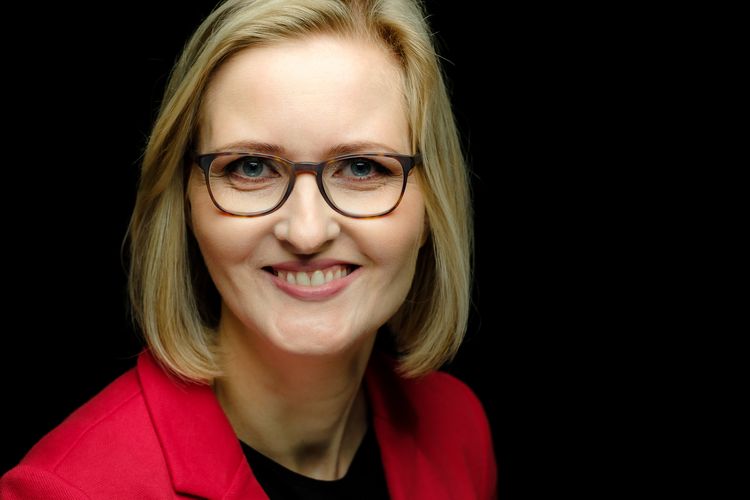
Johanna Bröll, Co-Founder and CEO Carbonsate, Mannheim Executive MBA Class of 2021“Reflecting on the EMBA journey, I can affirm thatits impact on both my professional and personal development has been profound. When I applied for the program, I was hoping to take my corporate career to the next level. However, as I delved into the depths of the program, acquiring a comprehensive 360-degree view of the business landscape, something transformative happened. The Strategic Business Project not only broadened my expertise but ignited a strong desire to embrace a more holistic approach to my professional journey. I found myself drawn to the dynamic challenges and endless possibilities of building something from the ground up."
Read more
What were your personal highlights and the most challenging moments of the program?
The program was marked by several personal highlights that significantly enriched my experience. The study trip to Bocconi, focusing on leading under uncertainty, stands out as an excellent and enlightening program. Additionally, the leadership training in France provided invaluable insights into my personal blind spots, while the innovation class sparked a new perspective on creative problem-solving. Developing an app and delving into basic coding added a practical and fulfilling dimension to my skill set.
However, there were challenges, with a notable lowlight being the program coinciding with the Covid lockdown. As the weekend-based format evolved during this period, I often found myself, after a week of remote work in my demanding day job, spending additional days in front of my screen. The virtual nature of all group work intensified the situation, leading to Zoom fatigue and a sense of being chained to the screen. It was a significant contrast to what I had hoped for when I signed up just before the Covid pandemic, adding a layer of extra stress. Despite this challenge, the program’s highlights ultimately outweighed the lowlights, contributing significantly to my overall growth and learning experience.
The Strategic Project has evolved into your own company. Did you consider such a possibility when you started the program?
When I applied for the program, I was hoping to take my corporate career to the next level. The thought of it evolving into my very own company wasn’t even on my radar. However, as I delved into the depths of the program, acquiring a comprehensive 360-degree view of the business landscape, something transformative happened.
The Strategic Business Project not only broadened my expertise but ignited a strong desire to embrace a more holistic approach to my professional journey. It was during this intense experience that my passion for entrepreneurship was sparked. I found myself drawn to the dynamic challenges and endless possibilities of building something from the ground up.
This discovery became the cornerstone of my considerations, eventually steering me towards a decision that initially wasn’t part of the plan – to become an impact entrepreneur. The evolution from a strategic business project to founding a climate-tech startup was an unexpected but incredibly rewarding twist in my career path, fueled by the insights and inspirations gleaned from the program.
Looking back, how has the EMBA helped you in your professional and personal development and career?
Reflecting on the EMBA journey, I can affirm that its impact on both my professional and my personal development has been profound.
Firstly, the EMBA experience has been invaluable in developing a more holistic view of business. The program’s comprehensive curriculum and diverse perspectives have broadened my understanding, allowing me to navigate the complexities of the business landscape with a more well-rounded approach.
From a leadership standpoint, the EMBA has been a transformative journey. Exposure to a wide range of leadership styles, case studies and collaborative assignments has provided me with a multifaceted leadership perspective. This diverse exposure has not only honed my leadership skills but also equipped me with the capability to tackle challenges from various angles.
One of the most significant outcomes has been the boost in my confidence. Through its rigorous curriculum and interactive learning environment, the EMBA has empowered me to approach professional challenges with newfound assurance. The combination of theoretical knowledge and hands-on experience has contributed to greater self-assurance, enhancing my decision-making and leadership abilities. Exposure to new situations has played a pivotal role in my personal and professional growth, expanding my adaptability and resilience. These experiences have not only enriched my skill set but also shaped me into a more versatile and confident professional.
Also, the program has been a catalyst for changing my thinking in many ways. The exposure to cutting-edge concepts, real-world applications and dynamic discussions has shifted my mindset. I now approach problems with a more strategic and innovative perspective, constantly seeking opportunities for growth and improvement.
In essence, the EMBA has been an incredible journey that has not only elevated my professional capabilities but also left an everlasting mark on my personal and leadership development.
What role does the MBS Network play for you personally and professionally?
The MBS Network holds a significant role for me, both personally and professionally. While the concept of a strong professional network was always emphasized, its practical importance became crystal clear when I founded my own company. Suddenly faced with numerous challenges and the need for insights into unfamiliar territory, the MBS Network proved to be an invaluable resource.
The network’s strength lies in its responsiveness and willingness to help. Whether it was information, solutions to challenges or introductions to relevant contacts that I was seeking, the Mannheim Network consistently exceeded my expectations. The collaborative ethos within the community is genuinely impressive, turning potential obstacles into shared successes.
On a personal note, the program not only expanded my professional connections but also introduced me to individuals who have become lasting friends. The shared experience of the program has not only enriched my career but also created a network of genuine connections, extending beyond professional collaboration to a community of like-minded individuals.
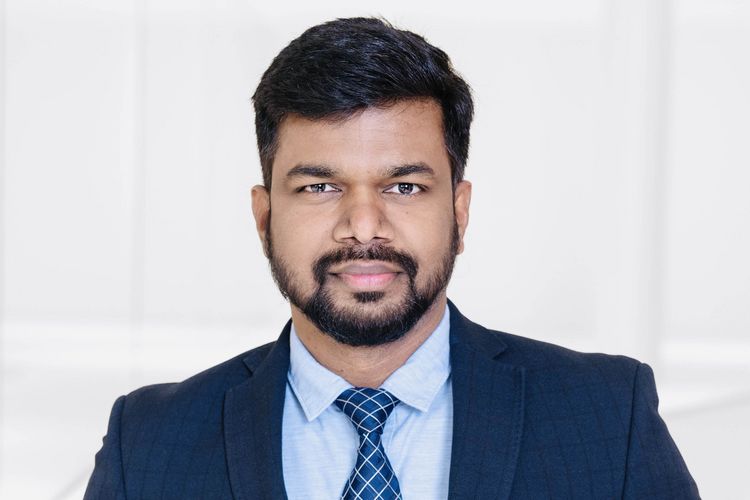
Deva Prasanna Nandyala, Principal - Solution Architect/Consultant at Aras Corporation, Mannheim Executive MBA Class of 2023“This whirlwind adventure has been nothing short of a thrilling roller-coaster ride. From intense classroom lectures led by seasoned industry professors to engaging in thought-provoking case studies, stimulating group discussions, and inspiring presentations within our cohort, every moment has been a valuable learning experience. As we close this chapter, I step into the future armed with knowledge, experience, and an invaluable network. Here's to the exciting opportunities that lie ahead!”
Read more
Reflecting on the journey, there are numerous noteworthy moments to mention, yet here are some of the standout highlights:
Intense Classroom Lectures: We delved deep into various management subjects, broadening our horizons. Each class offered a wealth of knowledge deeper understanding of Management styles and attributes. Strategic Leadership, Organizational Behavior, Marketing Management, Corporate Finance, Decision Analysis, Mergers & Acquisitions to name but a few.
OutdoorLeadership Training in France: An unforgettable experience that strengthened our bonds, teaching us the essence of teamwork and leadership attributes.
Social Project Sonnenkinder: We discovered the importance of empathy and giving back to society – essential qualities of effective leaders.
Group Assignments: Learning how to navigate team dynamics while delivering results with multi-competency teams was a memorable journey. Special thanks to my MCT for their unwavering support!
Study Trips to the USA and Singapore: These study trips exposed us to diverse business cultures, geopolitics, negotiation practices, and regional business protocols.
Strategic Business Project: An all-encompassing overview of startup business, spanning from ideation to market research, business strategy, and financials. A big shoutout to my SBP team for their continuous support!
EMBA Cohort: Finally, our cohort was nothing short of amazing. We shared experiences, learned from each other, formed lasting friendships, and celebrated successes together. Everyone's eagerness to learn something new was truly inspiring.
As we close this chapter, I step into the future armed with knowledge, experience, and an invaluable network. Here's to the exciting opportunities that lie ahead!
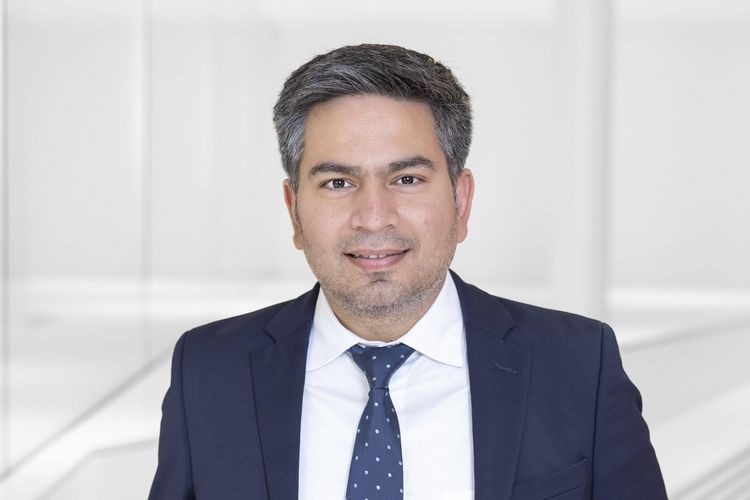
Raghav Oberoi, PhD, Associate Director, Process Science Lead at CSL Behring, Mannheim Executive MBA Class of 2023“This Executive MBA program has been a game-changer, not only expanding my horizons but also providing me with practical tools and strategies to excel in my career. As I reflect on the last 18 months, I am amazed at how much I've grown both professionally and personally. I've learned to embrace challenges, think critically, adapt to an ever-changing business landscape, and appreciate the richness of global perspectives. As I reflect on this chapter, I am deeply humbled by the incredible network of people who have touched my life during this journey. Together, we've created memories, expanded our knowledge, and built a foundation for an exciting future.”
Read more
18 months ago, I embarked on this incredible adventure with a thirst for knowledge, personal growth, and a drive to enhance my business & leadership skills. It's been an intense and rewarding experience, filled with late nights, group projects, insightful discussions, and unforgettable friendships. This Executive MBA program has been a game-changer, not only expanding my horizons but also providing me with practical tools and strategies to excel in my career. One of the highlights has undoubtedly been the study trips to Georgetown University McDonough School of Business and ESSEC Asia-Pacific. These immersive experiences have taken me to diverse corners of the world, allowing me to witness first-hand the global business landscape and its intricacies. I want to express my deepest gratitude to my professors, classmates, mentors and most importantly my family who have been a constant source of inspiration and support throughout this journey. Your wisdom and guidance have been invaluable.
As I reflect on the last 18 months, I am amazed at how much I've grown both professionally and personally. I've learned to embrace challenges, think critically, adapt to an ever-changing business landscape, and appreciate the richness of global perspectives. As I reflect on this chapter, I am deeply humbled by the incredible network of people who have touched my life during this journey. Together, we've created memories, expanded our knowledge, and built a foundation for an exciting future.
This is not the end; it's just the beginning of a new chapter. I am excited to apply what I've learned and the knowledge I've gained from all of you to drive innovation, lead teams, and make a positive impact in the business world.
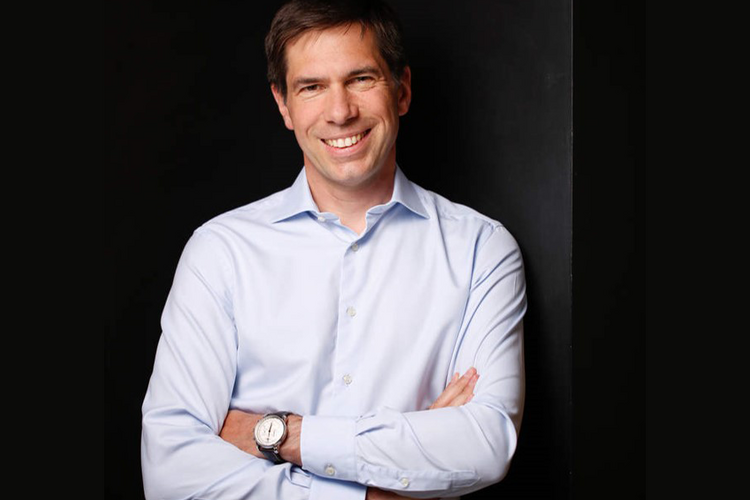
Dr. Daniel Häußermann, Chairman of the Executive Board / CEO of ZECH Hochbau AG, Mannheim EMBA Alumnus 2016“The EMBA not only provided me with a theoretical knowledge of economics, but also broadened my mind and helped me to reflect on many topics relating to my career, my approach to work, and internationality. Managing extreme workloads and getting through tough times with night shifts during the EMBA after arduous days clearly prepared me for times of crisis like the current one. A ‘never give up’ attitude helps a lot in times like these. Besides that, in a crisis situation companies need leaders with good general management skills, people who are genuine and empathic. To help your company, you will need to be able to deal with a lot of different issues, for example safeguarding liquidity, reducing costs without destroying the company, but also reassuring the anxieties of your workforce, and winning back clients.”
Read more
1. What is your professional background? Why did you decide to do an EMBA? Why did you choose the Weekend Track of the ESSEC & MANNHEIM Executive MBA (now: Mannheim Executive MBA)?
Following my studies in Law at the University of Tübingen and my PhD, I first started an ordinary career as a lawyer in a law firm before I joined the legal department of Bilfinger SE (at that time Bilfinger Berger AG). Over time, the company offered me the opportunity to develop my skills outside the original legal environment as Head of Mergers & Acquisitions and shortly thereafter also Head of Corporate Strategy. To support me in this career move and in stepping out of my comfort zone, an Executive MBA seemed to me the best way to learn and understand more about business models, strategy, and business analytics. The weekend-based Executive MBA at Mannheim Business School was my preferred option as already then it was the top program in Germany, and in terms of location it was the easiest to combine with my family of four kids and my challenging job in Mannheim.
2. What impact did the EMBA have on your career?
The EMBA not only provided me with a theoretical knowledge of economics, but also broadened my mind and helped me to reflect on many topics relating to my career, my approach to work, and internationality. Both the knowledge and the title I gained with the EMBA gave me the personal strength and validation I needed to step out of my initial profession and take on an operational role as CEO. In order to succeed in such a new role, you need to be open, ask questions, and build up trust. However, you also need to have the business tools ready to apply them in your job, and the EMBA helped me a lot in getting familiar with those tools. Of course, there were moments during the program when I wasn't sure whether I would be able to finish it – with all the challenges I was facing in my personal and working life at that time. But, as often in life, once you push through, you benefit even more from the experience and the confidence you get out of such an achievement.
3. What were some significant experiences that you took away with you from the program? What was your personal highlight?
For me personally, the classes in strategy, strategic leadership, and change management were absolute highlights. The residency at UCLA in Los Angeles was outstanding as the entrepreneurship we experienced there opened new horizons. The interaction with my international class mates with all their different backgrounds was a great experience as well, with friendships and a network that are still going strong today.
4. How did the EMBA prepare you for dealing with crisis situations such as the current corona pandemic?
Managing extreme workloads and getting through tough times with night shifts during the EMBA after arduous days clearly prepared me for times of crisis like the current one. A ‘never give up’ attitude helps a lot in times like these. Besides that, in a crisis situation companies need leaders with good general management skills, people who are genuine and empathic. To help your company, you will need to be able to deal with a lot of different issues, for example safeguarding liquidity, reducing costs without destroying the company, but also reassuring the anxieties of your workforce, and winning back clients.
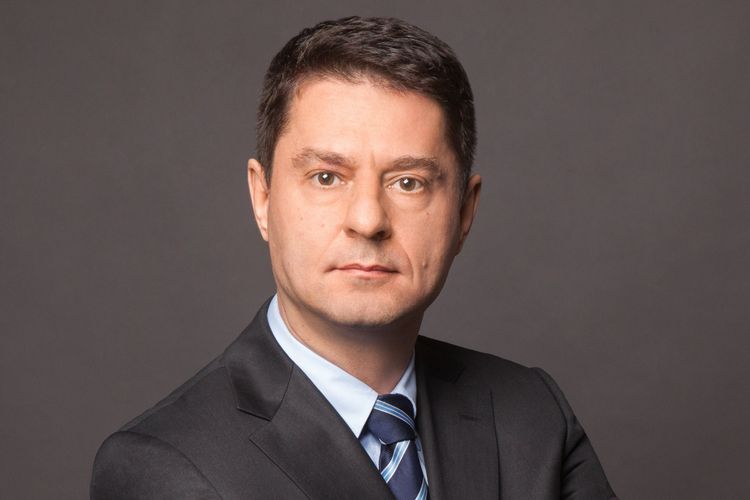
Dejan Miletic, Mannheim Executive MBA Class of 2017“Thanks to the tools and methods I learned during the program, I can recognize opportunities and estimate risks much better. I feel much more confident and a better leader. With the Mannheim Executive MBA, I got so much more than I expected – an amazing network of peers, tangible and applicable knowledge, a powerful career boost – and all with a ROI of just two years.”
Read more
My goal was to develop myself further. I wanted to close gaps in my professional knowledge, extend my network, and thus speed up my career. Before deciding in favor of Mannheim, I had a look at London Business School (LBS) and Eli Broad College of Business at MSU – Michigan State University, USA. It was the atmosphere at MBS, the timetable, the clear and structured program, and the possibility to talk to alumni and attend a class free of charge before admission that made up my mind. Other arguments that sweetened the deal were the price of the Executive MBA at MBS and the German tax system.
Thanks to the tools and methods I learned during the program, I can recognize opportunities and estimate risks much better. I feel much more confident and a better leader. Recognizing my development as an executive, my company increased their trust in me and gave me more responsibility. One year after graduation I got promoted and am now leading sales units on three continents.
It is hard to single out just a few experiences as there were so many valuable lessons and encounters. But the first things that come to mind are the outdoor leadership training and the strategic project: The former because of the simple and yet so powerful takeaways, and the latter because of the lessons learned.
My personal highlights were definitely my classmates and professors. I was privileged to learn and work with amazing people.
With the Mannheim Executive MBA, I got so much more than I expected – an amazing network, tangible and applicable knowledge, a powerful career boost – and all with a ROI of just two years.
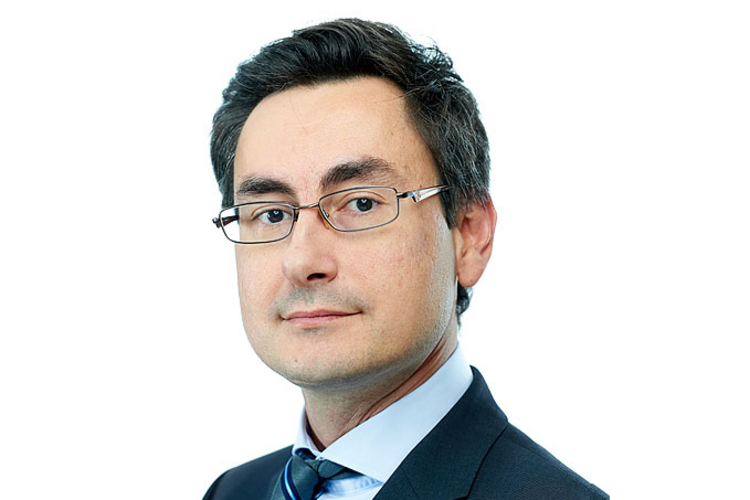
Attila Huttera, ESSEC & MANNHEIM EMBA Class of 2018“Our recent Advanced Immersion Module on Risk Management marked the final stage of our 18-month EMBA journey. Corporate Social Responsibility works hand in hand with Risk Management to combat the causes and effects of unforeseen events. We gained a comprehensive overview of how relational stakeholder governance, involving NGOs, government, communities, media, and industry associations, in addition to supplier and customer relations help reduce risks arising from uncertainty and insufficient contract coverage.”
Read more
A new start in the last EMBA module
Our recent Advanced Immersion Module on Risk Management marked the final stage of our 18-month EMBA journey. This last get-together of our class before graduation was in the brand-new Conference Center of Mannheim Business School beneath the chambers of the splendid Mannheim Palace.

A lesson on the impact of a vision: I remember Prof. Wüstemann, president of Mannheim Business School, envisioning and presenting an innovative study center that was about to be built. This was two years ago, during an EMBA Open Day event I attended. The site has now been completed, replacing the previous concepts and layouts with a ready-to-enter realm.

The course week was complemented with two networking events for participants from several MBS courses. On the first day, a joint lunch with our successors, the ESSEC & Mannheim EMBA class of 2019, gave us the opportunity to exchange experiences and discuss the next steps to take during and after the study program. The event was augmented with presentations by the Honorary Consul of France in Mannheim and the Head of Cultural Urban Development encompassing projects for start-up centers, co-working spaces, and intercultural meeting points in Mannheim. During one of the evenings we were invited to Drinks & Drums, a networking event organized at Mannheim Palace for participants of the EMBA, MBA, and Taxation programs. While enjoying finger food, drinks, and conversation, a professional drumming team prompted us to swing our hips and show our own interpretation of rhythm.
But of course, the main purpose of the study week was to attend and benefit from the Risk Management lecture, which has been newly integrated into the EMBA program. In the first part, Prof. Ebert from the Frankfurt School of Finance & Management introduced contemporary concepts of financial risk assessment and corresponding hedging strategies. Since even experts and executives are prone to behavioral biases in financial decision-making, Prof. Ebert’s audiences typically comprise business schools alongside executive boards of big corporates like Deutsche Bank.
In the second part of the course, we elaborated with Prof. Bode how process and product complexity elicit supply chain risks, which impact operational fulfillment and reputation. Corporate Social Responsibility works hand in hand with Risk Management to combat the causes and effects of unforeseen events. We gained a comprehensive overview of how relational stakeholder governance, involving NGOs, government, communities, media, and industry associations, in addition to supplier and customer relations help reduce risks arising from uncertainty and insufficient contract coverage.
As our EMBA comes to an end, we have also taken the opportunity to draw conclusions on our joint effort, the Social Class project. Our “all hands on deck” philosophy engaged all members and leveraged our diversity. Our various academic, cultural, and personal backgrounds helped generate a huge range of ideas and initiatives for charitable events and fund raising, which we can be proud of in retrospect.

All said and done, we are now approaching the final countdown to the jury presentation of our entrepreneurial and intrapreneurial strategic projects, before being entitled to throw our hats in the air at the graduation ceremony.

(Group photo by Andrew Auseichyk)
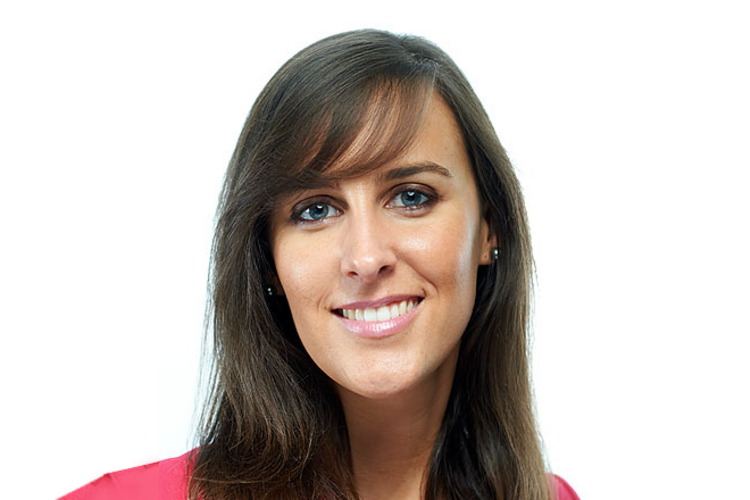
Marina Safont Sempere, ESSEC & MANNHEIM EMBA Class of 2018“Go ahead! It is fun; it is enriching; it takes you out of your comfort zone. You get to know great people and experience a very intense team spirit that is otherwise difficult to find. You will come out better prepared for your working life – and everything else too. In the program, with my classmates, there is no discrimination of any type: we are people who manage to have fun whatever our cultural background, religion or gender may be. We live and experience diversity at its best!”
Read more
What is your main motivation for an EMBA program?
I am a scientist and I have been working in science for a very long time (six years on the job and four years on my Ph.D.). When I started working after my Ph.D., I realized that my ability to make decisions in a corporate environment was limited due to my lack of business know-how. The question that repeatedly comes up whenever there is a new invention is: Is it economically viable? I realized that great technology without a good business plan, good marketing, the right customer orientation, and the right contacts cannot be successful.
For me as a scientist, the MBA program was a great opportunity to broaden my skillset and get a broad overview of all the important aspects of business and the most relevant issues in leadership management. I wanted to achieve a better understanding of all that is required to make a company work, and to differentiate myself from the many people around me by enhancing my profile in this direction.
Has it met your expectations so far? Has it already had an impact on your daily work and career?
So far, I have found the program to be very enriching. I am really quickly getting an overview of many important aspects of business and leadership that I can directly apply in my working environment. I wanted to prepare myself for the next step in my career: to move into a more business-oriented position. In fact, during my MBA I had the opportunity to change from R & D to product management and new business development in the inorganics division within BASF, and the MBA was a clear enabler for me to be able to take this step and take advantage of this exciting opportunity.
Now I really enjoy my new job, getting to experience what I learn in class and being able to add some value to my unit by applying what I am learning. My new job is fun and I feel really fulfilled being able to contribute with my new skills. It is also exciting to learn and live what daily business means, the contact with customers, and marketing in the various regions. Without the MBA, I probably would not have got this position so fast. It has so far already proven to be worth it.
How do you manage to juggle your job, the study workload, and private life?
I have no kids, so one of things that motivate me is to see my colleagues with kids and high-responsibility jobs, and realize how well they manage. They are an inspiration to me. I guess everyone getting into such a program is ready to sacrifice their free time and put in a lot of effort to progress. It is hard to spend weekends and evenings after work reading, preparing assignments, and making calls to coordinate the different tasks with your team. But it is also gratifying to see how things progress and that we deliver good work in our teams.
The most difficult part for me is being able to disconnect: I ALWAYS have something to do – work, class, social life! So my stress level sometimes goes through the roof. But this is also part of learning, being able to multitask, deliver and be efficient, and being able to have fun between one thing and another.
What advice would you give other women thinking of doing an EMBA?
Go ahead! It is fun; it is enriching; it takes you out of your comfort zone. You get to know great people and experience a very intense team spirit that is otherwise difficult to find. You will come out better prepared for your working life – and everything else too. I guess I would say the same to a guy if he were to ask me. In the program, with my classmates, there is no discrimination of any type: we are people who manage to have fun whatever our cultural background, religion or gender may be. We live and experience diversity at its best!

Shuang Han, MANNHEIM & TONGJI Executive MBA, Class of 2016“Just like the final miles of a marathon, my final thesis will be the greatest challenge. However, all the training - the accumulated knowledge and skills - throughout the program, will now produce results. I look forward to celebrating my graduation in summer 2018!”
Read more
The journey is coming to an end
The operations module is my last module of the MANNHEIM & TONGJI Executive MBA program and the final study trip to Shanghai, China.
Before this module, I had already completed the marketing, strategy and finance modules, among others. All these business areas are dependent on and involved in daily operations. Therefore, the MANNHEIM & TONGJI EMBA program establishes this unique operations module as a basis and critical element of the program for executives to understand how to run and improve the execution of their daily business. The operations module includes: corporate governance by Prof. Kenneth Kim, a leading subject expert worldwide; strategic performance management by Prof. Chris Chan, Ivey Business School, with more than 19 years’ consulting and executive education experience; operations and supply chain management by Prof. Manpreet Hora, US, with diverse industrial operations experiences; and information systems by Prof. Carol Hsu, Tongji University.


Information systems class, operations and supply chain class

Corporate governance class
Again, this is a quite intensive module with a large volume of assigned reading, group work and pre- and post-assignments. However, I found it is very helpful to get an overview of the key principles, concepts, best practices, etc. in various aspects of daily operations. All professors are experts in their research areas, with very diverse industrial backgrounds and educational experiences. For instance, Prof. Kim is one of the top researchers in corporate governance, now the leading expert worldwide and co-author of a best-selling book on corporate governance. His lectures cover the broad perspectives of corporate governance including that of accountants, auditors, executive incentives, boards, investors, shareholders, etc. with many real industrial cases. Due to the unique Sino-German business focus of the MANNHEIM & TONGJI EMBA program, Prof. Kim also spent half a day discussing the details of corporate governance in China and sharing his experience of it over the last 10 years.


Group work preparation
Prof. Hsu introduced an innovative app called “POP – Prototyping on Pager”, used for developing new digital prototype designs, in her information systems class. This app simply and quickly transfers a business idea from paper into a working demo with an interactive user interface. Program participants used this app in the group assignment and developed their ideas into an application within a few clicks. After presenting core business ideas in a working demo application, each group could collect feedback immediately. The app allows each group to quickly modify their applications based on this feedback. After several iterations, the business idea and related features were dramatically improved to be closer to customer and market requirements.


An example presented in POP
The company visits are always my favorite part of each study module. This time we visited the SAIC Volkswagen production plant, the Shanghai Motor Vehicle Inspection Center and the Intelligent Connected Vehicle Innovation Center in Anting, Shanghai. Company representatives presented the history of SAIC Volkswagen, a site plan, its current status, future challenges, etc. We then also visited the production line of several car models produced by SAIC Volkswagen. Finally, we sat together with program alumni, well-known industrial scholars and Anting government officials in an open forum and were inspired by speeches about alumni start-ups and entrepreneurship, Anting’s current position and long-term innovation plan, and automotive industry trends.

SAIC Volkswagen visit
An EMBA is definitely not only about hard work, but also a lot of fun. Shanghai is the most developed economic center of China. It has a huge variety of restaurants, bars and cafes. After a day of lectures, group work and assignments, it is very important to be able to relax in the city.


Shanghai, China, after class
Between September 2016 and September 2017, a total of six modules, more than 60 days’ study leave, more than 70 presentations, assignments and group-work activities, meetings with more than 60 executives with diverse industry backgrounds, etc. were split between Mannheim, Germany, and Shanghai, China. During the same period, a few classmates encouraged me to start running. In total, over more than 330 hours I ran close to 3,500 km and lost 20 kg. All of these were great experiences I had in the last 12 months that I could never have imagined before. All stem from my initial decision to start the MBS MANNHEIM & TONGJI EMBA program. I enjoyed this journey immensely!
Just like the final miles of a marathon, my final thesis will be the greatest challenge. However, all the training - the accumulated knowledge and skills - throughout the program, will now produce results. I look forward to celebrating my graduation in summer 2018!
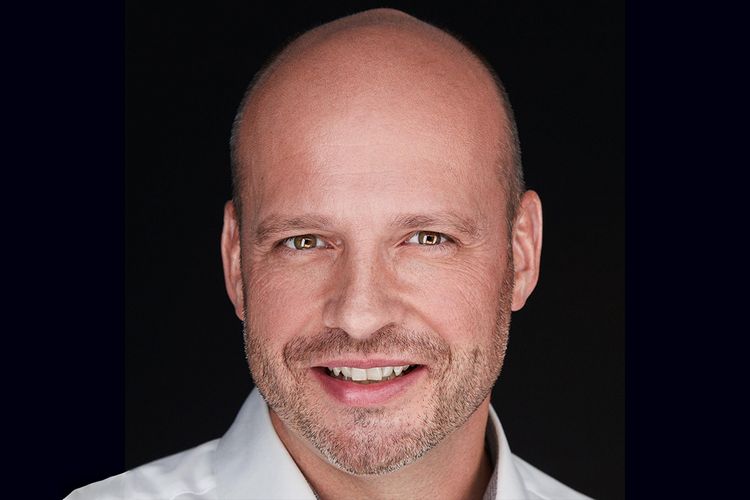
Jörg Bruch, Mannheim EMBA Class of 2014"One major motivation to do an Executive MBA was to fundamentally learn all the theories, tools, and skills that are relevant in business life. To me, choosing the Mannheim EMBA was a natural choice – first because it is the best business school in Germany and one of the best in Europe; second due to the proximity to my current hometown Heidelberg; last but not least due to the interesting curriculum."
Read more
When Jörg Bruch started his career with SAP SE, he held a degree in biology and geography, but had no formal education related to his business life. In order to fill this gap after more than ten years of work experience, he decided to join the Mannheim EMBA program:
"One major motivation to do an Executive MBA was to fundamentally learn all the theories, tools, and skills that are relevant in business life. To me, choosing the Mannheim EMBA was a natural choice – first because it is the best business school in Germany and one of the best in Europe; second due to the proximity to my current hometown Heidelberg; last but not least due to the interesting curriculum."
Bruch values the impact his MBA degree has made on his business life:
"The learnings are really helpful in my day-to-day business life, now having a solid background in Corporate Finance, Financial Accounting and many other disciplines. I also found myself reconfirmed in my leadership role, not only within my company but in a group of other executives from different companies and industries with really diverse backgrounds. Finally making so many new connections to other executives, not only in my class but through the Alumni network of MBS also to many others, is a real value in itself."
Bruch's biggest take-away from the Mannheim EMBA program:
"A kind of 'I can do' attitude – going 'back to school,' managing all the lectures and assignments besides my normal work and eventually graduating after eighteen months was a great re-confirmation that I can still learn very efficiently and that I can achieve something great. Also the Entrepreneurial Project was a really changing experience that is hard to gain in a corporate environment. Keeping this entrepreneurial thinking for my work in a corporate environment alive is definitely something that puts the question of value in the center of the work."
While before the degree, his daily business was mainly operational and related to budgets, processes and formal HR topics, Jörg Bruch took on additional responsibility after his MBA - first as Vice President and COO of a large development unit within SAP and now as Head of IT Operations, responsible for the operation of all SAP business systems worldwide.
Downloads
- Mannheim Executive MBA Brochure
- ESSEC & MANNHEIM Executive MBA Brochure
- FACTSHEET Mannheim Executive MBA
- Factsheet ESSEC & MANNHEIM Executive MBA (Part-Time)
Contact Person
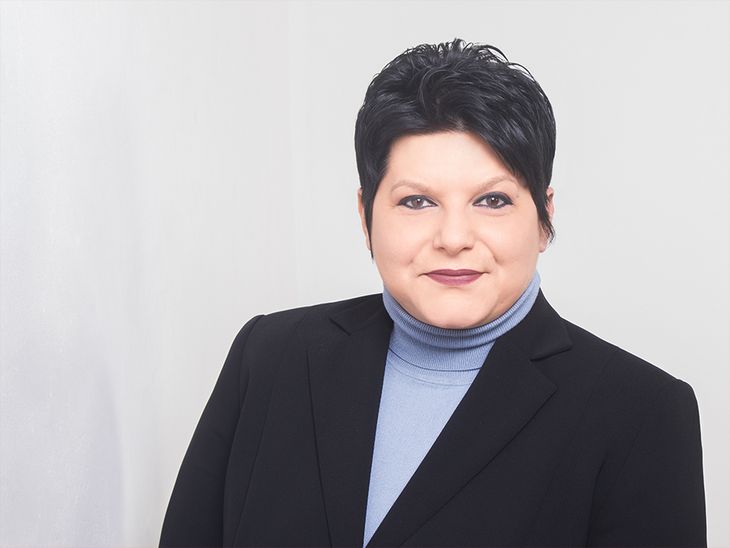
MANNHEIM BUSINESS SCHOOL (MBS)
Located in the heart of the German and European economy, Mannheim Business School (MBS), the umbrella organization for management education at the University of Mannheim, is considered to be one of the leading institutions of its kind in Germany and is continuously ranked as Germany’s #1.



